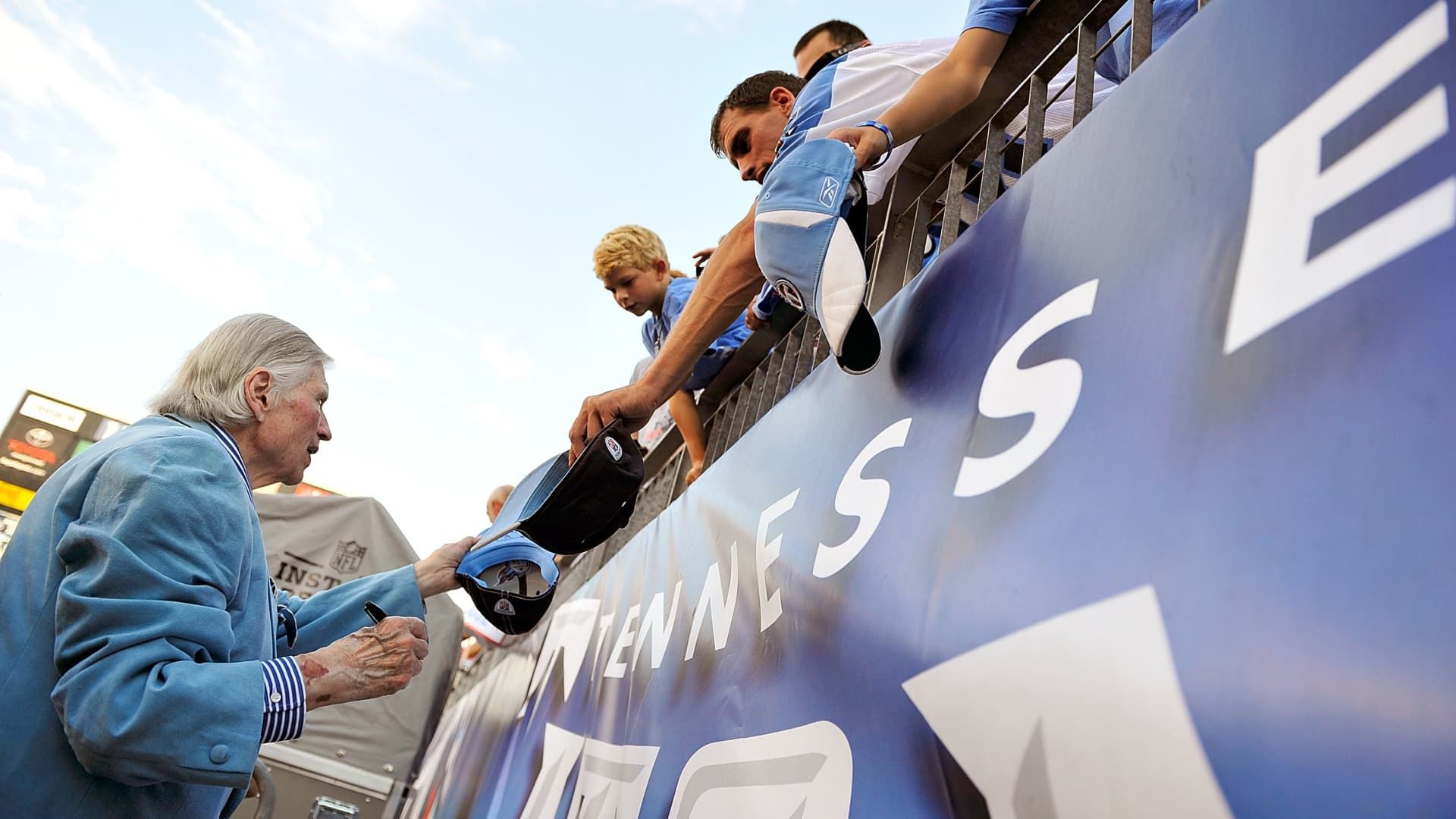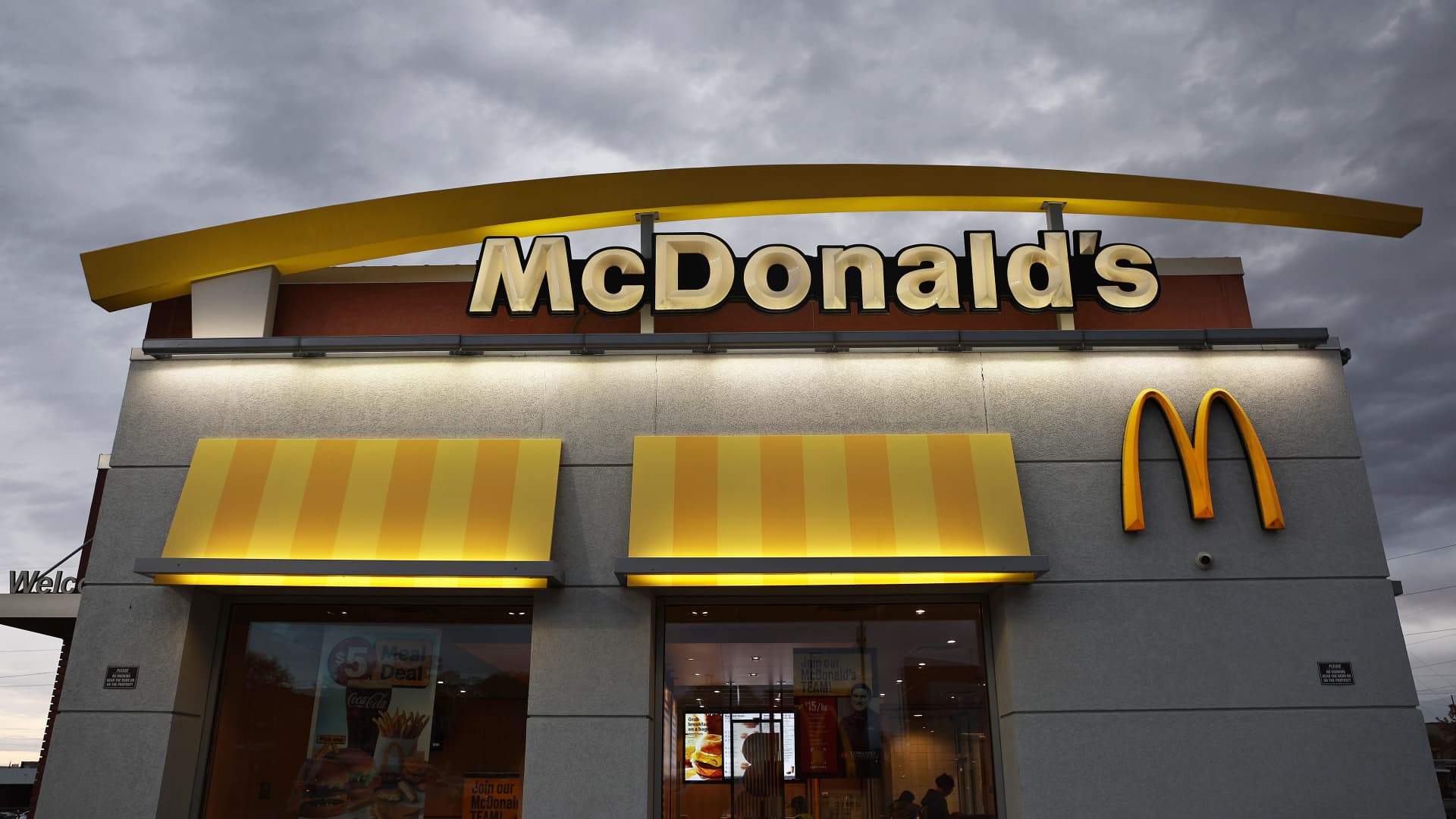A detailed view of the NFL shield logo painting on the field during a preseason game between the Los Angeles Rams and the Houston Texans at NRG Stadium on August 24, 2024 in Houston, Texas.
Ric Tapia | Getty Images Sport | Getty Images
Sports team owners who benefit from rising team values also face new pressure from two of the oldest certainties of American wealth: death and taxes.
As the average age of team owners increases and team values soar into the billions, owners and leagues are increasingly focused on how to ensure smooth ownership transitions to the next generation of buyers. While current owners have very sophisticated tax and succession plans, even the best plans can fall apart due to family disputes or unexpected tax changes.
“People who bought sports teams a long time ago have now discovered that a large portion, if not the vast majority, of their long-term wealth is now the value of the team,” said Stephen Amdur, co-head of the mergers and acquisitions and private equity practices at Pillsbury Winthrop Shaw Pittman, which advises many multibillion-dollar team owners. “They're thinking a lot about who's going to hold on to it for the next generation and what they're going to do with it.”
Succession and taxes have taken on special importance in the National Football League (NFL), where the average age of team owners is over 72 and team values are on the rise. CNBC's official list of 2024 NFL team valuations, which ranks all 32 professional franchises, will be released on Thursday.
NFL owners face one of two painful choices: They can sell the team while they are alive, which can create huge capital gains tax bills, or they can pass the team to their families, which can trigger estate taxes or protracted family battles for control.
Former Denver Broncos owner Pat Bowlen created a detailed succession and tax plan for the team a decade before his death in 2019. However, a bitter dispute between family members, both before and after his death, led to the team being sold in 2022 to Walmart heir Rob Walton for $4.65 billion.
Then-owner Bud Adams of the Tennessee Titans signs autographs during a preseason game against the Minnesota Vikings at LP Field on August 13, 2011 in Nashville, Tennessee.
Grant Halverson | Getty Images
Tennessee Titans founder Bud Adams, who died in October 2013, had split ownership of the team among three branches of his family, which he believed would keep the peace. Instead, the split created a very public battle for control, leading to a settlement within the family. Amy Adams Strunk, Bud's daughter, is now the team's majority owner.
Longtime New Orleans Saints owner Tom Benson set off years of litigation when he removed his daughter and two grandchildren from his estate and passed ownership of the NFL team and the National Basketball Association's New Orleans Pelicans to his wife Gayle when he died in 2018. She still maintains control of the Saints.
Then-New Orleans Saints owner Tom Benson and his wife Gayle before a game at the Mercedes-Benz Superdome on August 26, 2016 in New Orleans, Louisiana.
Jonathan Bachman | Getty Images
And perhaps the most poignant cautionary tale in the NFL is that of legendary Miami Dolphins owner Joe Robbie, who left the team to his wife and nine children upon his death in 1990. A family dispute and estate taxes of more than $45 million forced the family to sell most of the team in 1994.
Under current U.S. tax law, estates over $13.6 million for individuals or $27.2 million for couples are subject to a 40% tax. Given that NFL and NBA teams are now worth billions of dollars, all team owners could be subject to hundreds of millions of dollars in taxes if they do not plan properly.
Another issue is that it is unclear whether inheritance tax rates will change in 2025, when the current levels are set to expire. Therefore, property owners should be planning for the possibility of more punitive inheritance taxes being levied in the coming years.
Trust and estate attorneys say today's team owners have a much broader range of tools at their disposal to minimize the tax impact of probate. One of the most popular is the family limited partnership, which makes family members minority shareholders and leaves the principal owner, as general partner, in control. By splitting ownership, the partnership can reduce the value of the assets (and therefore the taxable estate) of the general partner.
Owners can also divide ownership among family members through individual trusts, as Chicago Bears owner George “Papa Bear” Halas Sr. did with his 13 grandchildren. They can also transfer a stake in the team to an irrevocable trust through a partnership or LLC.
Chicago Bears coach George Halas watches his team play the Los Angeles Rams at the Coliseum on November 2, 1958.
Bettmann | Getty Images
“Owners are spending more time thinking about long-term estate planning to ensure the most tax-efficient outcome possible,” Amdur said.
That's assuming the team stays in the family, of course. While owners often hope to pass on their passion and financial commitment to a team to their children, subsequent generations often have different financial interests or goals, which could mean divesting themselves of some ownership of the team.
And now there is a new group of potential buyers.
Last week, the NFL voted to allow certain private equity firms to buy minority stakes in teams, giving owners and their families the opportunity to raise cash they could then reinvest in their teams or invest in non-sports assets to better diversify — all while maintaining control.
“I think it's appropriate to give teams that liquidity to reinvest in the game and their teams,” NFL Commissioner Roger Goodell said in making the announcement.







